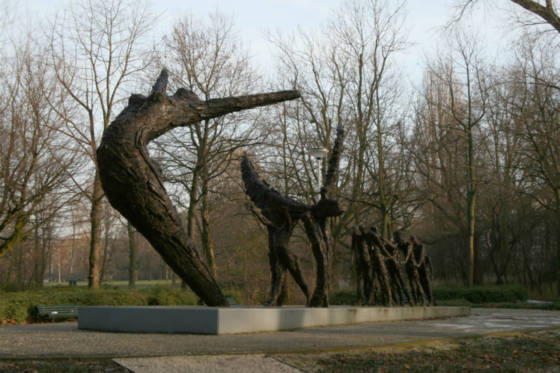Keti Koti is celebrated in the Netherlands on July 1: what you need to know


Today is Keti Koti, the day in which the end of slavery in the Dutch colonies of Suriname and in the Caribbean is recognised. Here’s what you need to know.
Slavery was formally abolished in the former colonies of Suriname and the Dutch Antilles on July 1, 1863, ending a period of around 200 years.
However, slaves in Suriname were only fully freed in 1873, since the law stipulated that there was to be a mandatory 10-year transition period. Owners were also paid compensation of 300 guilders for every enslaved person they released.
Keti Koti, which means ‘broken chains’ in the Surinamese language Sranantongo, has been celebrated in various Dutch cities on July 1 since 2002.
The national remembrance ceremony takes place in Amsterdam’s Oosterpark from 1pm and is broadcast live on television. The ceremony includes a minute’s silence and wreath laying.
This year numbers will be limited by the coronavirus pandemic. Normally it is accompanied by a multi-day festival in Amsterdam’s Zuidoost district.
Public holiday
July 1 is a national holiday in Suriname and there is a campaign under way to have it made a public holiday in the Netherlands as well. So far over 51,000 people have signed a petition in favour of the plan.
The four big Dutch cities have recently also called for Keti Koti to become a holiday. ‘The stories of slavery and colonial history must be spoken about openly,’ the council chiefs of Amsterdam, The Hague, Rotterdam and Utrecht said earlier this month.
Amsterdam’s mayor Femke Halsema is expected to issue an apology for the city’s role in slavery at Thursday’s ceremony.
However, prime minister Mark Rutte said last year the government has no plans at the moment to offer an apology for slavery and the Dutch role in the slave trade, and only 55% of the population backs the idea.
Last year, two of the four coalition parties – D66 and ChristenUnie – called on the government to take a stand but, Rutte said, a formal apology risked increasing polarisation.
Economic impact
At its height in the 1770s, slavery generated over 10% of the gross domestic product of Holland, the richest of the seven Dutch provinces which made up the republic, according to social history researchers.
The income from the tobacco trade, sugar processing and shipbuilding was boosted by the use of slave labour used to grow crops on plantations, according to researchers at the International Institute for Social History.
Other professions, such as notaries and bankers, also benefited from slavery. As a whole, slavery generated some 5.2% of the Netherlands’ GDP – just slightly less than the proportion generated by Rotterdam port today.
Increased focus
The Dutch role in slavery has been largely downplayed in the past and hardly taught in schools, but that is now changing.
This year, for example, Amsterdam is giving away a book on the city’s slavery past to everyone who wants a copy via libraries and the city hall.
The Rijksmuseum in Amsterdam is also currently hosting a major exhibition on slavery and enslaved people.
In addition, Surinamese resistance hero Anton de Kom and his book Wij slaven van Suriname have been included in the official Dutch history canon.
Documents online
And the Dutch central bank DNB has authorised an independent investigation into the bank’s historical links with slavery, particularly around the time it was abolished.
The National Archives have recently put almost two million documents and drawings online which relate to the Netherlands’ slavery past after an eight-year project to preserve and digitalise them.
The documents cover a variety of companies involved in the slave trade and include lost documents about Fort Elmina on the coast of what is now Ghana, which was a central point in the trade of enslaved peoples.
Thank you for donating to DutchNews.nl.
We could not provide the Dutch News service, and keep it free of charge, without the generous support of our readers. Your donations allow us to report on issues you tell us matter, and provide you with a summary of the most important Dutch news each day.
Make a donation